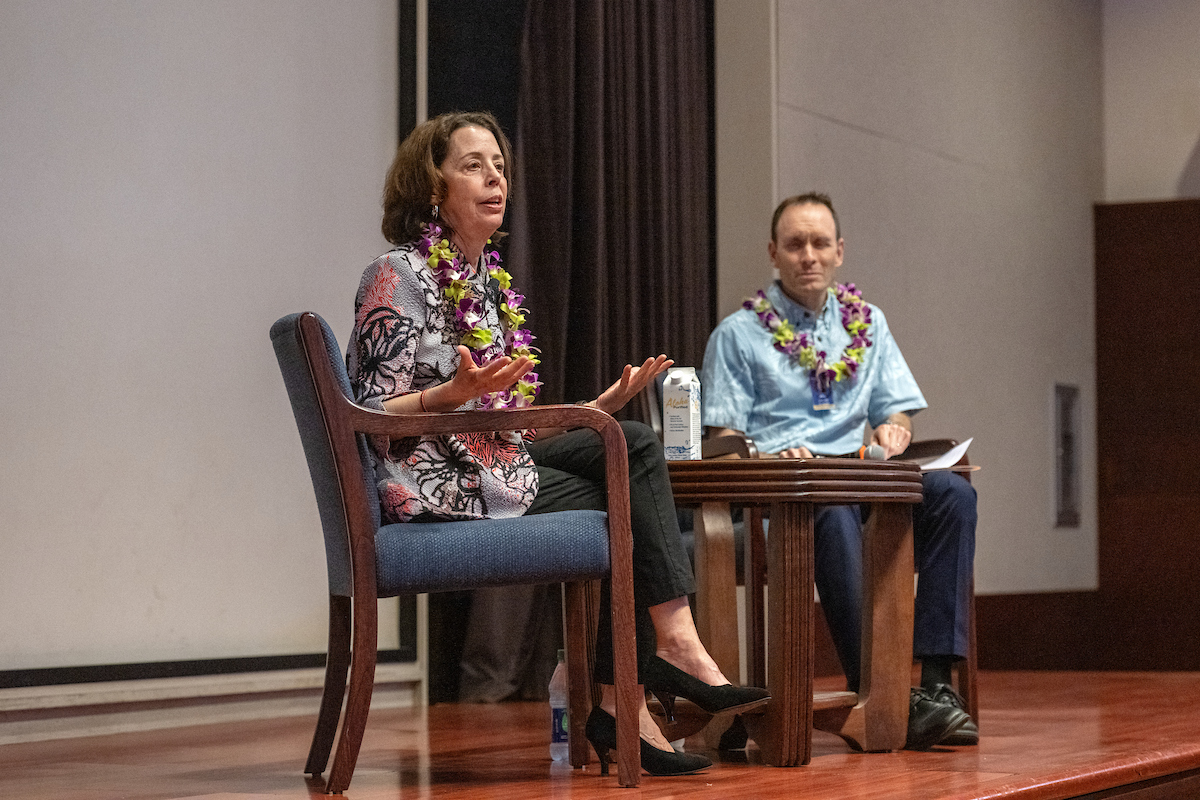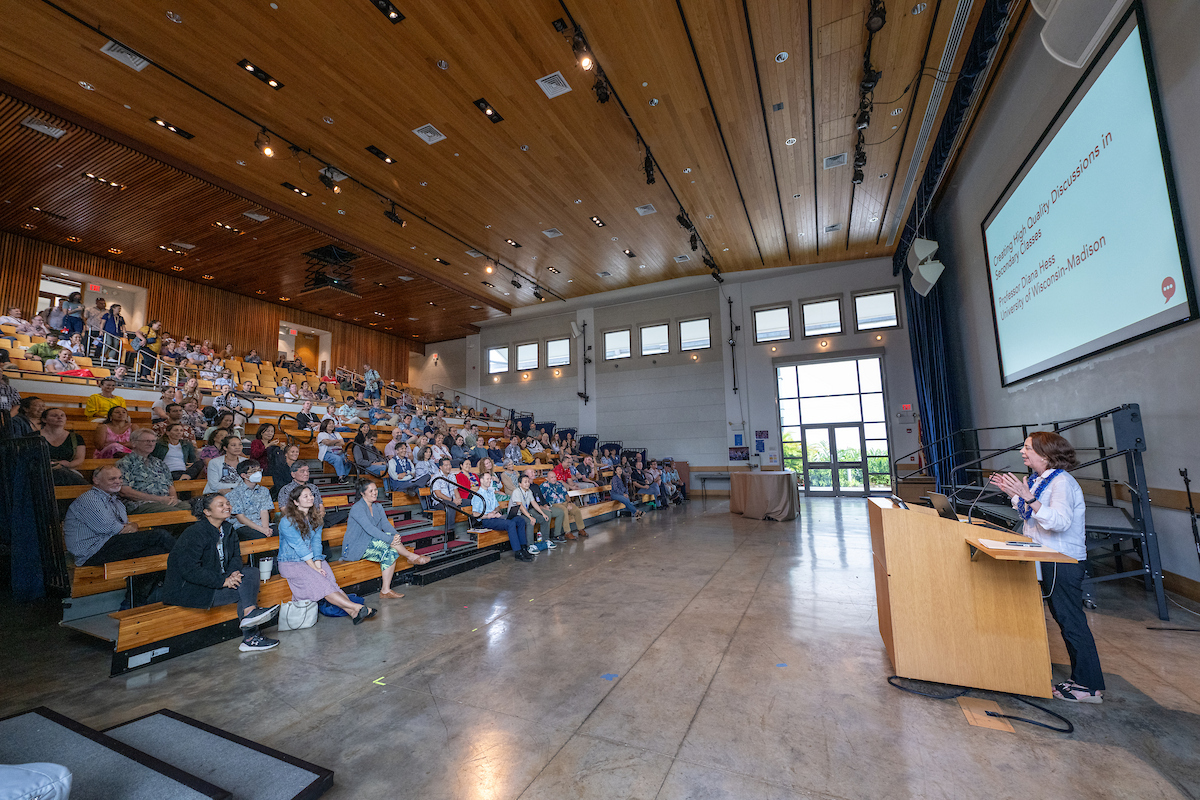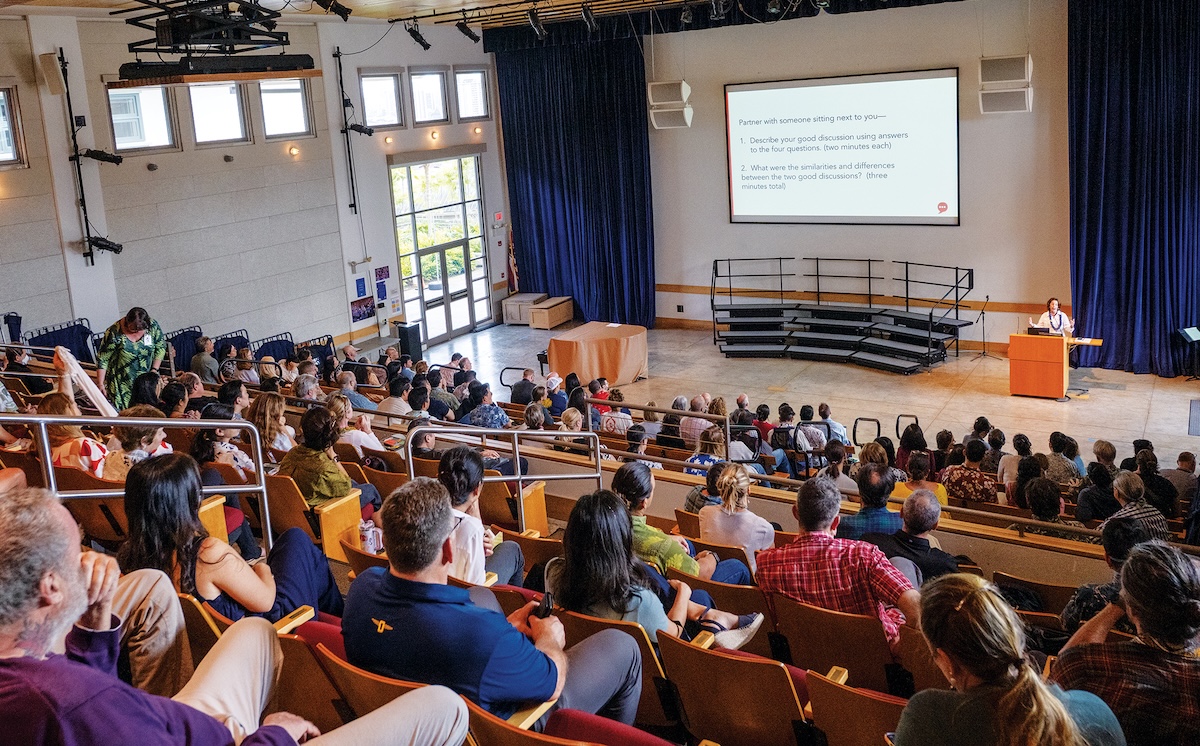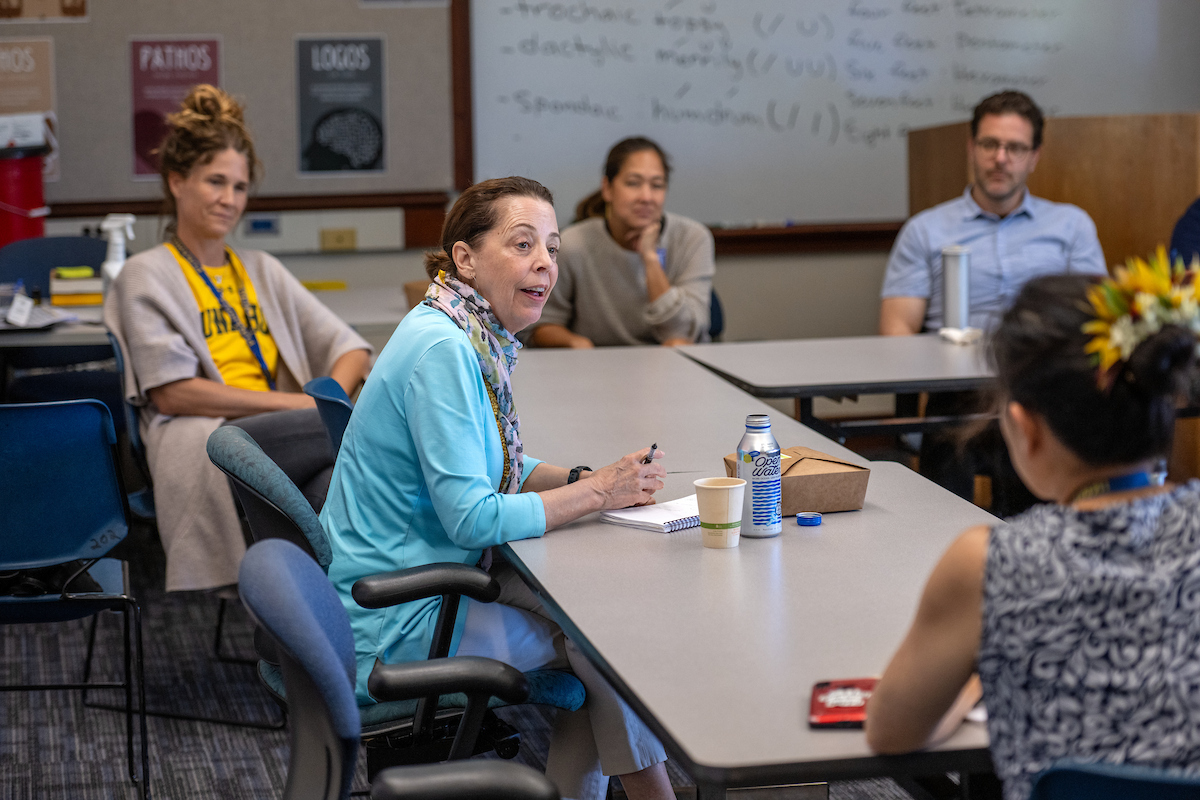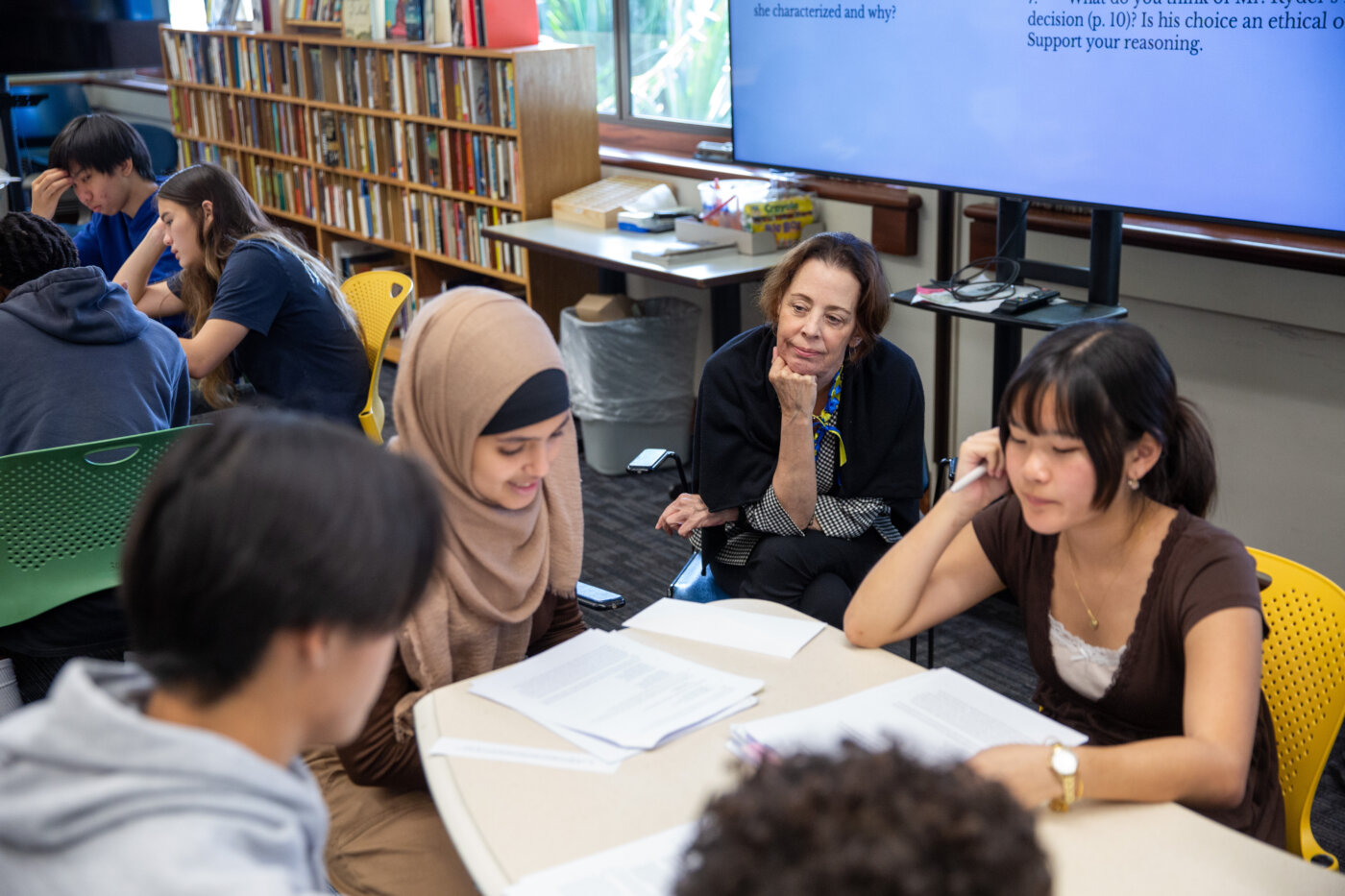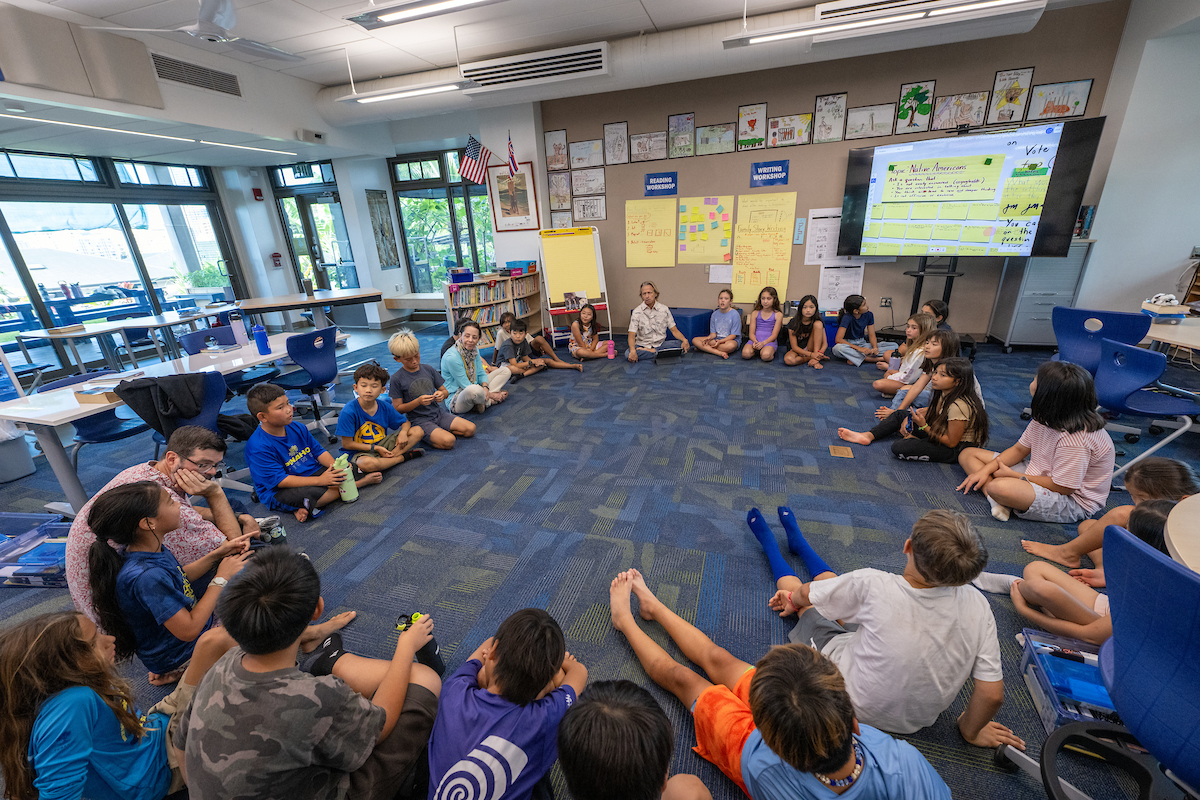How can educators facilitate political discussions in the classroom while fostering critical thinking and civic engagement? Diana Hess, a renowned expert on democratic education and the Senior Leader of The Discussion Project and Deliberation Dinners at the University of Wisconsin-Madison, addressed this question during her visit as the Davis Democracy Initiative (DDI) expert in residence.
Over the course of her weeklong stay, which included time at Hanahau‘oli School and UH Mānoa from Feb. 24 – 28, Hess met with teachers, visited classrooms and led public discussions.
A former high school social studies teacher, she helps coordinate the Discussion Project, which supports educators in leading productive and inclusive discussions. Hess is the third resident with DDI, which previously welcomed scholar Rochelle Gutiérrez and hip-hop historian Jeff Chang.
Hess led a half-day professional development session at UH Mānoa with 45 educators from public, private and charter schools, as well as university faculty. She also met with middle and high school faculty at Punahou to reflect on their experiences and discuss the implementation of democratic classroom practices.
Hess also worked with students, engaging in a “Dialogues Across Differences” model conversation, where high schoolers from Punahou, University Lab School and McKinley High School explored issues surrounding disinformation and free speech in the age of social media and AI. She later visited various Punahou classes and chapel, from fourth grade to 11th grade, where she discussed ways to approach difficult conversations with openness and respect.
Hess emphasized that good discussions are not just for humanities classrooms, they are essential across all disciplines, including STEM. She distinguished between general classroom talk and true discussion, defining discussion as “focused inquiry through speaking and listening,” a collaborative process that leads to deeper understanding through analysis and diverse perspectives.
Hess explained that students value exposure to viewpoints beyond their own homogeneous communities and that structured classroom discussions that allow students to feel “safe and challenged” help prepare them for civic engagement beyond school. “Discussion is like writing. It’s a skill that can be taught,” Hess said, underscoring the importance of teaching students how to listen actively, ask thoughtful questions, and express their views in an intelligible way.
In addition to working with teachers and students, Hess hosted two public events: a keynote address, “Teaching to Defend Democracy,” as well as roundtable discussion, “Education and Democracy Now,” that featured Hess alongside Mike Latham ’86, Punahou President, and other educators from various institutions. Together, they examined the role of schools in preparing students for civic participation and democratic engagement.
In her keynote address, Hess spoke about the role of educators as “democracy workers,” highlighting the connection between what teachers do in the classroom and the overall health of democracy. Teachers, she said, must be fair in how they approach civic education, ensuring they do not push their own political beliefs but instead create space for students to explore complex issues and come to their own conclusions. “Teach as if democracy depends on it, because it does,” she said
Hess’s visit left a lasting impact on educators who attended her sessions. “Dr. Hess delivered a thoughtful and inspiring message to faculty about the crucial role of discussion in a democratic society,” said Lara Cowell, Academy English faculty member. “Both students and teachers came away reflecting on how classes at Punahou can promote democracy and cultivate fairness when discussing controversial topics in a politically polarized environment.”
Photo by Kathleen Connelly

